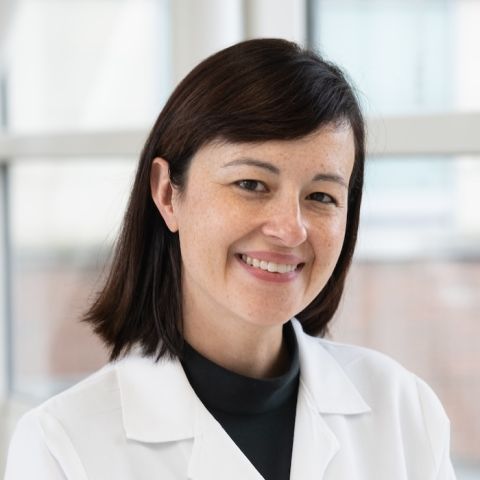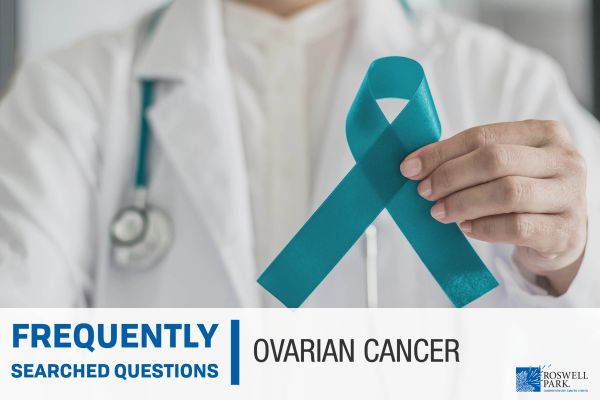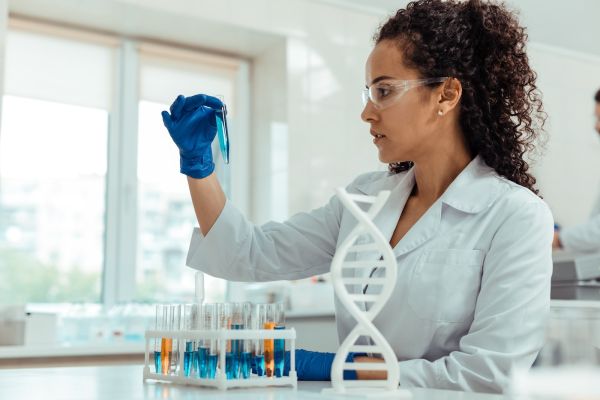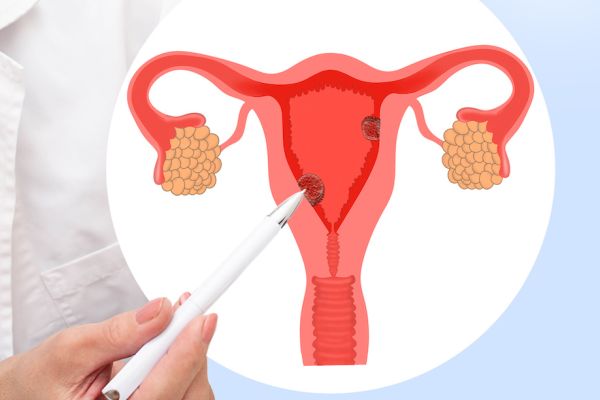When it comes to a gynecologic cancer, there are a lot of questions that might have you turning to the internet in search of answers. From screening to diagnosis and treatment, a cancer diagnosis can send you down a rabbit hole.
Roswell Park Comprehensive Cancer Center is here to help! Our gynecologic oncologists Katherine Mager, MD, FACOG, and Karen McLean, MD, PhD, FACOG, sat down to address some of the most frequently searched questions on the internet related to uterine cancer.
What are the first signs of uterine cancer?
“Almost always the first sign someone presents with is bleeding,” says Dr. McLean. Particularly in a person who has already gone through menopause, they may notice new bleeding like they are getting their period again. A person who has not gone through menopause may also present with irregular bleeding.
Other common symptoms include pelvic pain, difficulty emptying your bladder or pain while urinating.
How is uterine cancer diagnosed?
“Uterine cancer is diagnosed by taking a sample of the lining of the uterus,” explains Dr. Mager.
“Often the first step in diagnosis will be imaging, like an ultrasound, to look at the uterus as well as the cervix, tubes and ovaries,” explains Dr. Mager. “With those findings, you always need to take a sample of the lining of the uterus to see what the cells look like under the microscope.” This procedure is known as an endometrial biopsy.
This is a quick, in-office procedure that can be done in your gynecologist’s office. “If you’re someone who has a lot of discomfort with exams, it can be done in the operating room under anesthesia to make the test less bothersome,” says Dr. Mager.
Does a Pap test detect uterine cancer?
“The primary purpose for a Pap test is screening for cervical cancer,” says Dr. McLean. “This collects the cells on the outside of the cervix. A Pap test isn’t designed to detect uterine cancer, but it can occasionally catch it.”
“While many cervical cancers are like skin cells, uterine cancers are found in the glandular cells. Occasionally, a Pap test may come back showing abnormal glandular cells.” This discovery would prompt further examination, such as a biopsy, to confirm a diagnosis of uterine cancer.
Getting a second opinion
A precise and accurate diagnosis, staging, and treatment plan by a team of experts who focus on uterine cancer every day, is essential.
Is uterine cancer common in young adults?
“Classically, uterine cancer is something that tends to develop after menopause,” says Dr. Mager. In both subtypes of uterine cancer – endometrial carcinoma and uterine sarcoma — the majority of people diagnosed are post-menopausal.
“In the most common subtype of uterine cancer, endometrial cancer, we are seeing an increase in number of cases in younger people with a uterus,” says Dr. Mager. “If you have abnormal bleeding, even if you haven’t gone through menopause and you’re still getting your period, it’s very important to talk to your gynecologist about it.”
Is uterine cancer genetic?
Yes and no, says Dr. Mager.
“Many cases of uterine cancer are not associated with a genetic, or inherited, predisposition to the development of cancer," says Dr. Mager. "However, there are a subset of uterine cancers that are.” This condition is called Lynch syndrome. At Roswell Park, we test every person who has been diagnosed with uterine cancer for this syndrome.
“If you have a strong family history of colon or uterine cancers, it’s important to speak with your doctor about whether genetic testing would be appropriate for you,” says Dr. Mager. If your results are positive for Lynch syndrome, “there are things we can do to help decrease your risk of developing cancer.”
Can endometriosis cause uterine cancer?
Endometriosis is a condition where the cells that line the inside of the uterus begin to grow outside of the uterus and sometimes spread through the pelvic area. “Endometriosis is not cancer in and of itself,” says Dr. McLean. “Relative to the commonness of endometriosis, the likelihood of having it become a cancer is quite small.”
Because of how common it is, your gynecologist should have the skillset to help you manage the disease. “Sometimes, however, the severity of the endometriosis is such that the surgical expertise of a gynecologist oncologist would also help to manage it,” says Dr. McLean.
Does uterine cancer hurt?
Typically, no. “The biggest presenting symptom is the abnormal bleeding,” says Dr. Mager. “You can have cramping that goes along with it, but an early-stage uterine cancer is not going to hurt.” However, a more advanced-stage cancer has the potential to cause more pain and discomfort.




